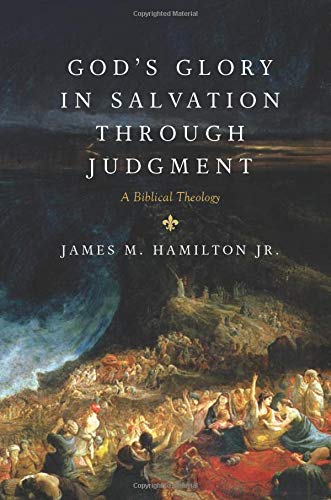Quotes about Eschatology-Judgment-Unbelievers
In the day that we stand before our Master and Maker, it will not matter how many people on earth knew our name, how many called us great, and how many considered us fools. It will not matter whether schools and hospitals were named after us, whether our estate was large or small, whether our funeral drew ten thousand or no one. It will not matter what the newspapers or history books said or didn’t say. What will matter is one thing and one thing only – what the Master thinks of us.
At the day of Doom men shall be judged according to their fruits. It will not be said then, Did you believe? But, Were you doers, or talkers only?
To find acquittal from God on the last day there must be evidence flowing out of us that grace has flowed into us.
The Reason for Redemption by Kevin DeYoung taken from The Hole in Our Holiness by Kevin DeYoung, copyright 2012, Crossway Books, a division of Good News Publishers, Wheaton Illinois 60187, www.crosswaybooks.org, p. 26.
The Lord waits so long in His graciousness that people think He cannot judge, but when He does come in judgment, it is so decisive that it seems as if He cannot show mercy. For this is not the sudden anger of an irritable temper, easily inflamed but equally easily pacified. This is deliberate, measure wrath, following a full investigation of the facts. There can be no last-minute appeals or reprieves, for there is no higher court to whom appeal can be made, and no pertinent facts have been overlooked in reaching the verdict. So it was with Sodom and Gomorrah, and so it shall be at the end of history [see Luke 17:28-30].
Living in the Gap Between Promise and Reality, P&R Publishing, 1999, p. 102. Used by Permission.
When we sin against Him, breaking His law, worshipping idols, searching for satisfaction in created things rather than in Him, we reject His kingship over us and thereby make ourselves liable to His good and righteous judgment.
The Gospel – God’s Self-Substitution for Sinners by Greg Gilbert, taken from Don’t Call it a Comeback, edited by Kevin DeYoung, copyright 2011, Crossway Books, a division of Good News Publishers, Wheaton Illinois 60187, www.crosswaybooks.org, page 74. Get this book!
Judgment is not limited to the degree of one’s sin; it’s much more associated to the degree of one’s rejection. That’s why I say, sitting under the gospel is very high-risk behavior.
A Warning to the Indifferent. Sermon originally appeared (https://www.gty.org/library/sermons-library/42-136/a-warning-to-the-indifferent) at www.gty.org. © 1969-2008. Grace to You. All rights reserved. Used by Permission.
Sinners still live with the illusion that they can make a judgment on Jesus Christ and avoid Him making a judgment on them… You judge Jesus wrongly, and He will judge you rightly… The question is not what will you do with Jesus, the question is when you see Him face-to-face, what will He do with you.
Jesus Accused Before Pilate. The sermon originally appeared at: www.gty.org/library/sermons-library/42-279/jesus-accused-before-pilate-part-2 at www.gty.org. © 1969-2008. Grace to You. All rights reserved. Used by Permission.
If you wrongly judge Christ, He will rightly judge you… All men render a verdict on Christ…and it is a verdict that has massive consequences for eternity.
The Sinless Savior Before the Sinister Sanhedrin. The sermon originally appeared at: www.gty.org/library/sermons-library/42-277/the-sinless-savior-before-the-sinister-sanhedrin-part-2 at www.gty.org. © 1969-2008. Grace to You. All rights reserved. Used by Permission.
It is vain to speak of approaching judgment when finding our place, our portion, and our enjoyment in the very scene which is to be judged.
Evidence, evidence, evidence, will be the one thing wanted when the great white throne is set, when the books are opened, when the graves give up their tenants, when the dead are arraigned before the bar of God. Without some evidence that our faith in Christ was real and genuine, we shall only rise again to be condemned. I can find no evidence that will be admitted in that day, except sanctification. The question will not be how we talked and what we professed, but how we lived and what we did. Let no man deceive himself on this point. If anything is certain about the future, it is certain that there will be a judgment; and if anything is certain about judgment, it is certain that men’s “works” and “doings” will be considered and examined in it (Jn. 5:29; 2 Cor. 5:10; Rev. 20:13). He that supposes works are of no importance, because they cannot justify us, is a very ignorant Christian. Unless he opens his eyes, he will find to his cost that if he comes to the bar of God without some evidence of grace, he had better never have been born.
People without Christ need to realize they will face three stages of God’s judgment. Most dreaded is the final and eternal stage of judgement when they are sentenced to hell after the Great White Throne (Rev. 20:11-15). Then there is the “intermediate stage” between an unbeliever’s death and the final sentencing. This is often called Hades, a holding tank with no opportunity to escape (Lk. 16: 26) that involves suffering (Lk. 16:23-24; 2 Pet. 2:9b). Yet right now, before death, they are also presently under the judgement of God. John 3:18, “He who believes in Him is not judged; he who does not believe has been judged already, because he has not believed in the name of the only begotten Son of God.”
Though judgment applies in all these cases, it’s one thing for people with very little knowledge of Jesus to reject the Savior. it’s quite another for people that grow up in Christian family and are heavily exposed to the truth. It’s even quite another for someone to profess faith in Christ, appear to walk with Jesus and then give the Lord a vote of no confidence. And it’s even quite another to do all the above and then intentionally lead other Christians astray by false teaching (see Heb. 6:4-6, 10:26-27; 2 Pet. 2: 20-22).
Jesus is not indifferent, unconcerned or unable to fulfill His promise. He knows after He returns there will be no opportunity for salvation. His so-called delay “as some count slowness” (2 Pet. 3:9) is a token of His mercy – giving people just a little more time to repent and trust Him. Jesus is being patient for His enemies to come to repentance. It was the same before His judgment with water. “When the patience of God kept waiting in the days of Noah” (1 Pet. 3:20). God is always looking to show mercy to the guilty (cf. Eze. 33:11).
Just as there are no ultimate tragedies for the believer, so for the impenitent unbeliever there are no ultimate blessings. Every good gift God bestows upon the wicked, for which the wicked do not glorify God or acknowledge His goodness with gratitude and worship, becomes a tragedy. The more gifts God gives that are despised by the recipient, the more guilt is incurred, so that, to the wicked, on Judgment Day the gifts of God’s kindness become tragedies.












